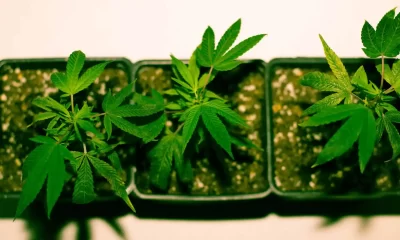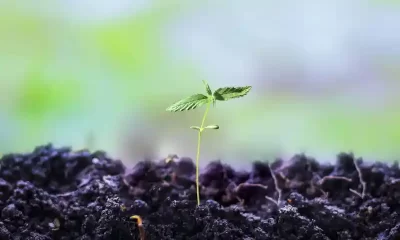Cultivation
What Happens To Marijuana Scraps?
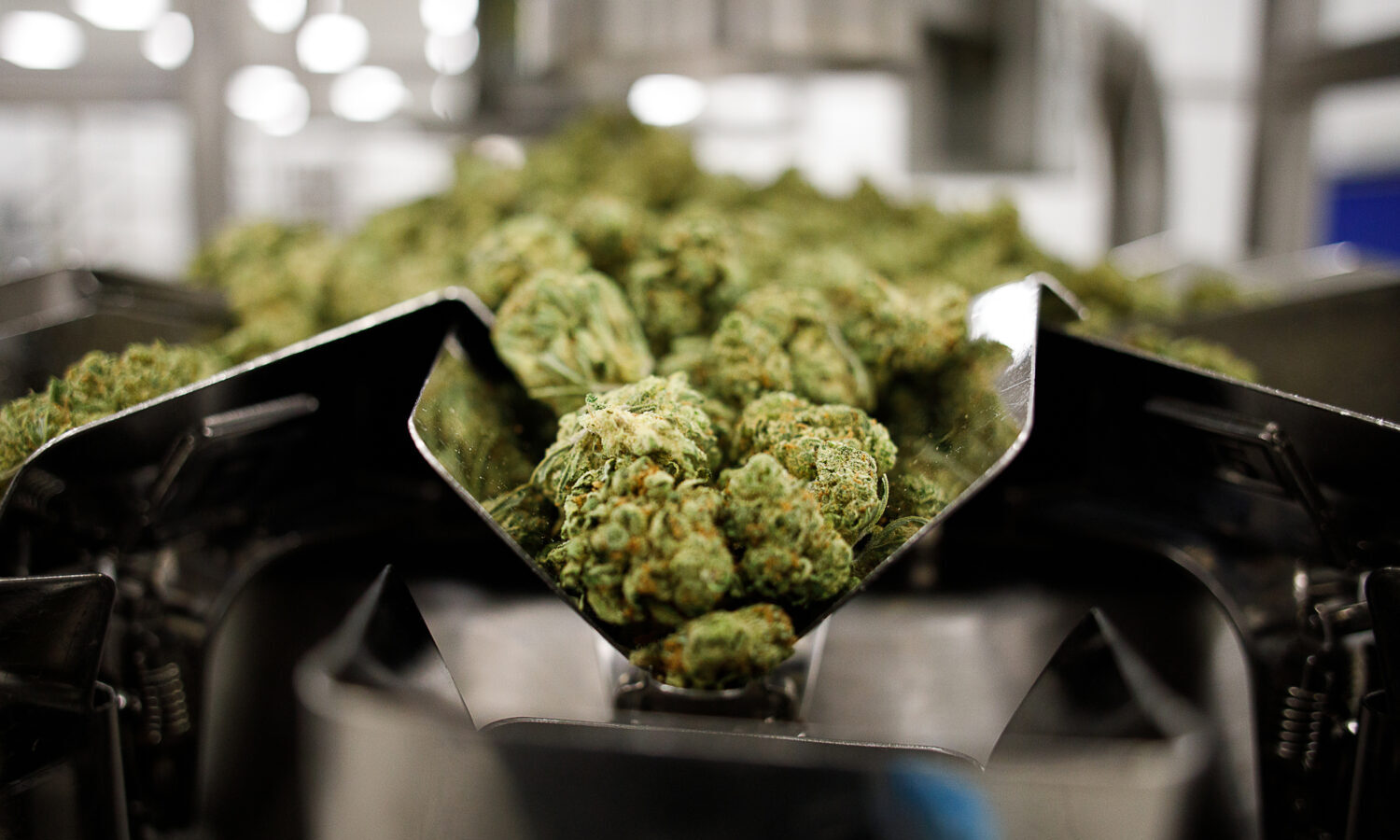
In this modern age of marijuana, what happens to the part of the plant that doesn’t get you high? There are many options.
Endless time, money and thought go into exactly what to do with marijuana buds once they are ripe for the picking. There are ever-evolving methods of extraction, and always a new and exciting way to consume cannabis. But the THC rich buds, or flower, are a small fraction of the towering cannabis plant.
After the plant has been cured and trimmed, there remains a large mound of natural cannabis scraps that must be dealt with. Years ago, in the olden days of cannabis cultivation, this pile could have been added to a compost pile out back, or burned safely in a controlled burn. Those unregulated days are a thing of the past.
In today’s legal and highly regulated market, you can’t just toss marijuana scraps in the back of the greenhouse. So, in this modern age of marijuana, what happens to the part of the plant that doesn’t get you high?
What Is Cannabis Waste, Exactly?
When you picture cannabis waste, the visual you have is likely a tidy mound of plant stalks and unusable leaves. This does make up a large portion of cannabis waste, but there are other forms of waste as well that can be a bit trickier and less green. “Cannabis waste can be any material that has come in contact with cannabis throughout the cultivation, production, manufacturing, or retail process,” according to the EcoWaste, a cannabis waste disposal service.
There are the sponges and chemicals used to clone and propagate plants. There are other unused products, and used testing samples. This hodgepodge of cannabis waste can make it a bit trickier to dispose of.
Cannabis Waste Requires Strict Record Keeping
Perhaps you live in a place where trash pickup is a bit of a pain. Maybe you need to separate trash in 4 different bins and bring it all the way to a recycling facility. If you think that is annoying, imagine having to keep records of everything you throw away. That, essentially, is what most farm managers are responsible for at their facilities. You cannot simply sweep up a mess and dump it, or light it ablaze and tell authorities it has turned to dust. There must be records, and documented proof that the cannabis waste has, indeed, been completely and properly disposed of.
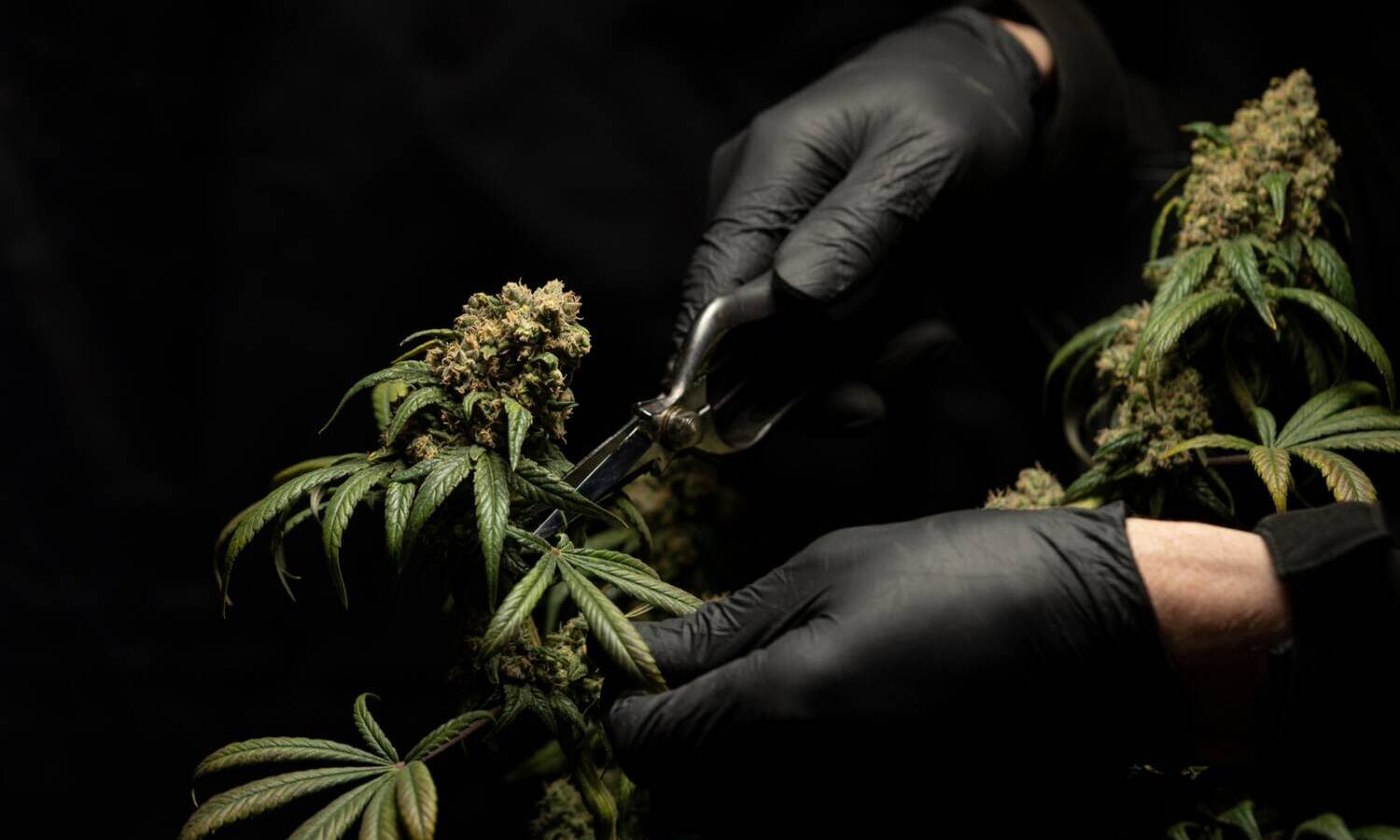
“Unlike other agricultural industries, cannabis growers in most areas must keep exhaustive records of every ounce of material they discard,” according to an article in BioCycle, a resource for organic recycling and composting. The article continues, stating that some laws are so strict and exact that “Some jurisdictions require that each plant get its own identification and tracking tag, or that senior managers from the producer accompany the wastes to any external disposal site.”
BioCycle also mentions how some states require video footage of cannabis waste areas be held for up to 90 days, in order to prove there is no discrepancy between written records and video proof. Needless to say, this is not your typical trip to the dump.
Composting Is Best, But Sometimes Complicated Option
Composting cannabis waste is often the best option for the environment and the growers. The problem is, you can’t simply throw cannabis waste into a compost pile and walk away. In addition to proper documentation, you need to grind, chop and mix the cannabis waste with non-cannabis waste to make sure that it no longer resembles anything that could be sold as a cannabis product.
In fact, according to Green Mountain Technologies, “Many state regulations for the disposal of cannabis waste require the cannabis to be mixed at least 50%-50% by volume with non-cannabis waste in order to render the cannabis waste unusable.” Once you achieve this mixture, you still need to find a suitable facility to take this compostable waste. This can be an adventure in itself.
Other disposal methods include:
- Bokashi Process
The Bokashi process is another compost-style method of recycling cannabis scraps, but involves using a vessel, an organic additive, and time. The process was invented in Japan in the 1980s, and, like competing, is a natural way of breaking down organic materials and turning them into a re-usable substance.
According to The Spruce, “Unlike traditional composting, which is an aerobic process that requires oxygen, Bokashi is an anaerobic process that requires that you isolate the materials from oxygen as much as possible.” This is an organic process fit for smaller operations, but for those with very large growing facilities, it would involve a large investment to build vessels large enough to get rid of all the organic waste.
- Cannabis Disposal Companies
As the cannabis industry continues to boom, all industries surrounding it are also growing and expanding — this even includes the waste treatment sector. All over the United States and Canada, small and large businesses are forming to help deal with cannabis waste removal. Some of these businesses focus on logistics and ease of surface, while others are focused on the organic route with the goal of lowering the cannabis industry’s carbon footprint. This is still a new frontier, and as the cannabis industry grows (along with the regulations that come with a legal cannabis market), these cannabis disposal companies are likely to multiply.
- Landfills
While the last place you would expect or want cannabis waste is in a landfill taking up space, this is a legal option and potential final resting place for cannabis scraps. Sure, many growers are environmentally friendly at heart, but the fact remains that there is no incentive apart from one’s own environmental morality to compost cannabis rather than send it to a landfill. In fact there are a few reasons cannabis is more likely to end up in a landfill than a compost facility.
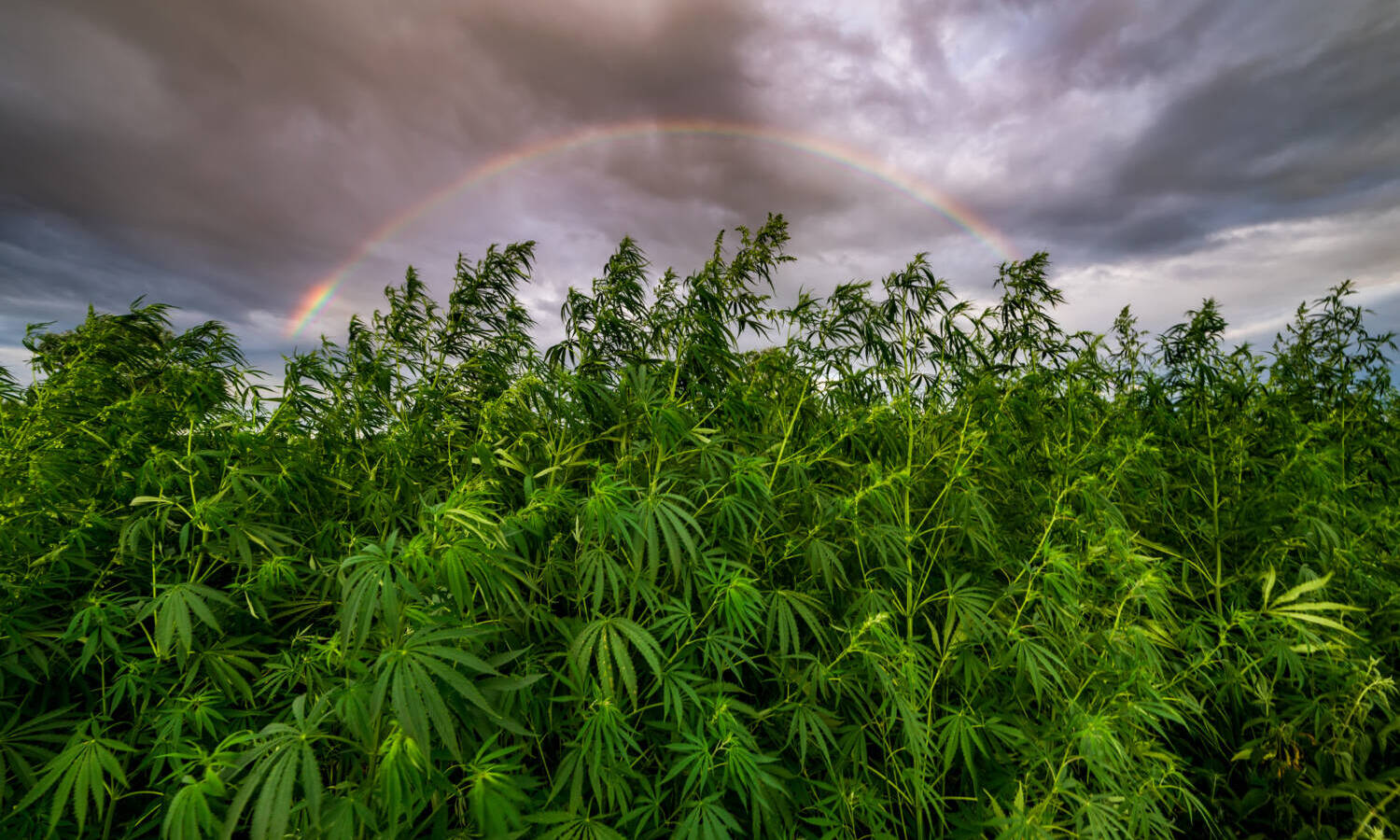
For one, landfills are often more accessible than compost facilities. This means, logistically, landfills are a much easier option for some companies. It is also important to note that you can only compost cannabis waste if it is mixed with equally organic materials, like dirt, grass or other organic waste. While this might be no problem for a large outdoor growing farm in a moderate climate, organic waste might be harder to come by in the middle of the winter for an indoor growing operation.
Cannabis disposal facilities offer an alternative to landfills, but they are not currently as prevalent an option. One can only hope that since these strict laws of marijuana waste disposal don’t seem to be going anywhere, perhaps we can at least find a simple and organic way to take care of the scrappier side of cannabis cultivation.
Source: https://thefreshtoast.com/cannabusiness/what-happens-to-marijuana-scraps/
Business
New Mexico cannabis operator fined, loses license for alleged BioTrack fraud

New Mexico regulators fined a cannabis operator nearly $300,000 and revoked its license after the company allegedly created fake reports in the state’s traceability software.
The New Mexico Cannabis Control Division (CCD) accused marijuana manufacturer and retailer Golden Roots of 11 violations, according to Albuquerque Business First.
Golden Roots operates the The Cannabis Revolution Dispensary.
The majority of the violations are related to the Albuquerque company’s improper use of BioTrack, which has been New Mexico’s track-and-trace vendor since 2015.
The CCD alleges Golden Roots reported marijuana production only two months after it had received its vertically integrated license, according to Albuquerque Business First.
Because cannabis takes longer than two months to be cultivated, the CCD was suspicious of the report.
After inspecting the company’s premises, the CCD alleged Golden Roots reported cultivation, transportation and sales in BioTrack but wasn’t able to provide officers who inspected the site evidence that the operator was cultivating cannabis.
In April, the CCD revoked Golden Roots’ license and issued a $10,000 fine, according to the news outlet.
The company requested a hearing, which the regulator scheduled for Sept. 1.
At the hearing, the CCD testified that the company’s dried-cannabis weights in BioTrack were suspicious because they didn’t seem to accurately reflect how much weight marijuana loses as it dries.
Company employees also poorly accounted for why they were making adjustments in the system of up to 24 pounds of cannabis, making comments such as “bad” or “mistake” in the software, Albuquerque Business First reported.
Golden Roots was fined $298,972.05 – the amount regulators allege the company made selling products that weren’t properly accounted for in BioTrack.
The CCD has been cracking down on cannabis operators accused of selling products procured from out-of-state or not grown legally:
- Regulators alleged in August that Albuquerque dispensary Sawmill Sweet Leaf sold out-of-state products and didn’t have a license for extraction.
- Paradise Exotics Distro lost its license in July after regulators alleged the company sold products made in California.
Golden Roots was the first alleged rulebreaker in New Mexico to be asked to pay a large fine.
Source: https://mjbizdaily.com/new-mexico-cannabis-operator-fined-loses-license-for-alleged-biotrack-fraud/
Business
Marijuana companies suing US attorney general in federal prohibition challenge

Four marijuana companies, including a multistate operator, have filed a lawsuit against U.S. Attorney General Merrick Garland in which they allege the federal MJ prohibition under the Controlled Substances Act is no longer constitutional.
According to the complaint, filed Thursday in U.S. District Court in Massachusetts, retailer Canna Provisions, Treevit delivery service CEO Gyasi Sellers, cultivator Wiseacre Farm and MSO Verano Holdings Corp. are all harmed by “the federal government’s unconstitutional ban on cultivating, manufacturing, distributing, or possessing intrastate marijuana.”
Verano is headquartered in Chicago but has operations in Massachusetts; the other three operators are based in Massachusetts.
The lawsuit seeks a ruling that the “Controlled Substances Act is unconstitutional as applied to the intrastate cultivation, manufacture, possession, and distribution of marijuana pursuant to state law.”
The companies want the case to go before the U.S. Supreme Court.
They hired prominent law firm Boies Schiller Flexner to represent them.
The New York-based firm’s principal is David Boies, whose former clients include Microsoft, former presidential candidate Al Gore and Elizabeth Holmes’ disgraced startup Theranos.
Similar challenges to the federal Controlled Substances Act (CSA) have failed.
One such challenge led to a landmark Supreme Court decision in 2005.
In Gonzalez vs. Raich, the highest court in the United States ruled in a 6-3 decision that the commerce clause of the U.S. Constitution gave Congress the power to outlaw marijuana federally, even though state laws allow the cultivation and sale of cannabis.
In the 18 years since that ruling, 23 states and the District of Columbia have legalized adult-use marijuana and the federal government has allowed a multibillion-dollar cannabis industry to thrive.
Since both Congress and the U.S. Department of Justice, currently headed by Garland, have declined to intervene in state-licensed marijuana markets, the key facts that led to the Supreme Court’s 2005 ruling “no longer apply,” Boies said in a statement Thursday.
“The Supreme Court has since made clear that the federal government lacks the authority to regulate purely intrastate commerce,” Boies said.
“Moreover, the facts on which those precedents are based are no longer true.”
Verano President Darren Weiss said in a statement the company is “prepared to bring this case all the way to the Supreme Court in order to align federal law with how Congress has acted for years.”
While the Biden administration’s push to reschedule marijuana would help solve marijuana operators’ federal tax woes, neither rescheduling nor modest Congressional reforms such as the SAFER Banking Act “solve the fundamental issue,” Weiss added.
“The application of the CSA to lawful state-run cannabis business is an unconstitutional overreach on state sovereignty that has led to decades of harm, failed businesses, lost jobs, and unsafe working conditions.”
Business
Alabama to make another attempt Dec. 1 to award medical cannabis licenses

Alabama regulators are targeting Dec. 1 to award the first batch of medical cannabis business licenses after the agency’s first two attempts were scrapped because of scoring errors and litigation.
The first licenses will be awarded to individual cultivators, delivery providers, processors, dispensaries and state testing labs, according to the Alabama Medical Cannabis Commission (AMCC).
Then, on Dec. 12, the AMCC will award licenses for vertically integrated operations, a designation set primarily for multistate operators.
Licenses are expected to be handed out 28 days after they have been awarded, so MMJ production could begin in early January, according to the Alabama Daily News.
That means MMJ products could be available for patients around early March, an AMCC spokesperson told the media outlet.
Regulators initially awarded 21 business licenses in June, only to void them after applicants alleged inconsistencies with how the applications were scored.
Then, in August, the state awarded 24 different licenses – 19 went to June recipients – only to reverse themselves again and scratch those licenses after spurned applicants filed lawsuits.
A state judge dismissed a lawsuit filed by Chicago-based MSO Verano Holdings Corp., but another lawsuit is pending.
Source: https://mjbizdaily.com/alabama-plans-to-award-medical-cannabis-licenses-dec-1/
-

 Business2 years ago
Business2 years agoPot Odor Does Not Justify Probable Cause for Vehicle Searches, Minnesota Court Affirms
-

 Business2 years ago
Business2 years agoNew Mexico cannabis operator fined, loses license for alleged BioTrack fraud
-

 Business2 years ago
Business2 years agoAlabama to make another attempt Dec. 1 to award medical cannabis licenses
-

 Business2 years ago
Business2 years agoWashington State Pays Out $9.4 Million in Refunds Relating to Drug Convictions
-

 Business2 years ago
Business2 years agoMarijuana companies suing US attorney general in federal prohibition challenge
-

 Business2 years ago
Business2 years agoLegal Marijuana Handed A Nothing Burger From NY State
-

 Business2 years ago
Business2 years agoCan Cannabis Help Seasonal Depression
-

 Blogs2 years ago
Blogs2 years agoCannabis Art Is Flourishing On Etsy


